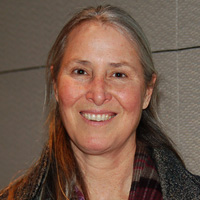Decades ago Berkeley realized that our police force needed the community's cooperation to have public safety. We instituted what was called "police review," an arrangement where people could complain about police misconduct to an independent, civilian oversight council.
Those days are gone. The commission exists, but thanks to recent state law, it now operates in secret, and seems unmoved by civil liberties violations, raising, for instance, no objection to the criminalization of sitting, which, thankfully, our voters rejected.
Police officers who commit irresponsible behavior today have little incentive to care about community objections. They work closely with the district attorney. Their uniforms prejudice juries. Their supposedly non-lethal weapons kill. When a police officer shoots an unarmed person, as happened recently in Oakland, San Francisco and Santa Rosa, it shakes a community to its core.
I've been arrested for standing on a public sidewalk silently with a candle. I've been arrested for sitting on a chair on an unobstructed sidewalk playing the fiddle as part of a demonstration illustrating legal behavior, according to not only the civil rights lawyers I work with, but also the police supervisor on the scene. These illustrations of police over-reach produced no policy change, no discipline against the arresting officers, nothing.
The first time I was arrested, 36 of us were rounded up for sitting silently in a circle in a public park. The women were searched as many as eight times while moved from one holding area to another. Some men were not searched at all. We were held for three days without charges. When I asked what the charge was, as instructed by non-violence trainers to do, they said, "We'll think of something."
